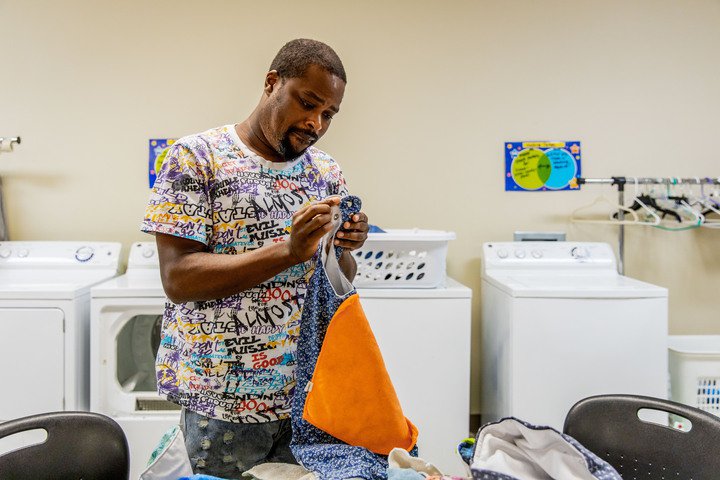
Independent living for adults with disabilities is a fundamental right that should be accessible to all. It means the ability to live in an environment of one’s own choosing and make decisions about how best to lead one’s life, without relying on others for excessive assistance or support. This includes having access to safe and affordable housing, as well as resources that facilitate independent decision-making and self-sufficiency like employment opportunities, transportation, health care services, and educational programs.
For individuals with disabilities, securing suitable housing can pose a significant challenge due to physical barriers, such as steps leading up to entrances and a lack of appropriate modifications within dwellings. A potential solution is shared housing, which allows people with disabilities to rent rooms or apartments from landlords while sharing essential household items like furniture, appliances, and kitchenware.
Shared housing also provides individuals with disabilities with social interaction and companionship they may not have otherwise experienced while living alone, allowing them the opportunity to build crucial life skills such as communication and problem solving.
We must ensure our laws reflect this need so that everyone has the chance at a quality lifestyle filled with dignity and respect.
The importance of independent living for adults with disabilities is often overlooked, but as the disability rights activist Helen Keller once said, “Alone we can do so little; together we can do so much.” It is time to come together and recognize that fostering independence should be a priority when it comes to supporting adults with disabilities.
In this article, we will discuss why independent living is essential for adults with disabilities to thrive emotionally and physically, both within their communities and beyond.

Why Shared Housing Is a Viable Option
Shared housing is a solid option for adults with disabilities and offers many benefits. It provides increased affordability through cost sharing, which is vital for those on a limited income or in need of financial aid. Shared housing arrangements can also be tailored to meet individual needs and preferences.
One of the most important reasons shared housing is an attractive choice for adults with disabilities is its potential to provide social and emotional support. Living together in a shared household creates companionship and camaraderie, which can help improve quality of life and build lasting relationships between people from different backgrounds.
Furthermore, having multiple individuals present ensures enhanced safety and security, and all housemates benefit from sharing various household responsibilities.
Successful models for shared housing have already been established in other cities across the country, demonstrating how this form of communal living has helped further empower disabled people while also providing them with much-needed assistance when times get tough. By offering both short-term and long-term arrangements, these models create a supportive atmosphere where everyone involved feels valued and respected, regardless of their disability status.
Easterseals Roommate Housing Program
Shared housing can be a beneficial option for adults with disabilities, and Little Rock's roommate housing program offered by Easterseals Arkansas is specifically designed to promote independence and self-sufficiency. With the aim of creating a supportive community for individuals with disabilities, the Easterseals Roommate Housing program provides a range of advantages for participants.
One of the key benefits of roommate housing through Easterseals is the opportunity for peer support. Living with compatible roommates allows individuals to develop meaningful relationships and social connections with their peers. This sense of community and belonging can have a positive impact on emotional well-being and may contribute to improved academic or workplace performance. Roommates often become close friends who understand each other's unique needs and challenges, providing valuable support and companionship.
In addition, individuals with physical or mental impairments may require extra assistance with daily activities such as cooking meals or doing laundry. Having roommates can greatly reduce stress levels and ease some of the burdens associated with these tasks. Sharing household responsibilities allows each individual more free time outside of work or school commitments, as they are not solely responsible for all tasks. Easterseals provides ongoing support and oversight to ensure that the living environment is safe and conducive to the well-being of all participants.

Moreover, living in a shared apartment complex through Easterseals' program also provides access to amenities such as swimming pools or fitness centers that may be otherwise unaffordable for an individual living alone.
In sum, the Easterseals Roommate Housing program offers several advantages over traditional independent living arrangements for adults with disabilities. It promotes peer support, reduces financial costs, improves quality of life, and provides access to amenities, all while maintaining a safe and supportive living environment.
Accessible Housing in Little Rock
Finding accessible housing in Little Rock can be a challenge for individuals with disabilities, but it is an important step towards achieving independent living. Accessible housing should provide features like wide doorways, grab bars, ramps, and other disability-friendly amenities that promote independence and mobility.
Financial aid options exist that could help people with disabilities find affordable and suitable housing; however, navigating the process of finding available resources requires support from knowledgeable professionals such as social workers or case managers.
When searching for accessible housing in Little Rock, here are some key considerations:
- Know your rights when discussing accessibility needs with landlords.
- Have all necessary paperwork ready before signing a lease agreement.
- Visit potential homes ahead of time to ensure they meet your requirements.
Ultimately, having access to appropriate accommodations provides a feeling of self-reliance and control over one’s daily life. With financial assistance and proper guidance from experienced professionals, those with disabilities can make well informed decisions on their quest for independent living through securing accessible housing in Little Rock.
Overcoming Challenges in Independent Living
Adults with disabilities often face unique challenges when it comes to independent living.
We must strive to ensure that all individuals have access to the resources and support needed for successful independent living.
One important factor in overcoming these obstacles is ensuring these individuals develop life skills such as self-care, effective communication, problem solving, time management, budgeting, and meal preparation. Teaching job skills through training programs or other methods, depending on individual needs, is essential for individuals to maintain their independence.
Additionally, having an established social network provides emotional support, which helps reduce any feelings of loneliness and isolation associated with disability.
In order to fully realize their potential, adults with disabilities need assistance navigating complex systems and advocating for themselves so they can gain equal access to healthcare services, employment opportunities, and housing options. With adequate financial recourses and proper guidance from qualified professionals—such as mental health counselors or peer support specialists, supportive family members, or organizations dedicated to helping people with disabilities—independence is within reach for many more adults with disabilities.
Conclusion
It is possible for individuals with disabilities to achieve independent living despite the challenges, ultimately ensuring a better quality of life. With proper support and assistance from family, friends, community organizations, and government agencies, individuals with disabilities can construct an environment that suits their individual needs and desires.
To make this happen, there are several factors that must come into play:
- Education on available resources for disability rights advocacy
- Financial aid for necessary adaptations to existing homes or the rental or purchase of a home suitable for one’s lifestyle
- Support systems such as peer mentoring programs and transportation services
- Accessible public spaces and amenities
- Increased awareness of issues facing those with disabilities
By taking advantage of housing-related opportunities, adults with disabilities have the chance to build a more stable future for themselves. They can gain independence while connecting with other members of their community and gaining access to practical life necessities.
In addition, they will experience increased self-sufficiency and dignity as they become empowered to take charge of their own lives. Ultimately, assisted autonomy provides individuals with disabilities the opportunity to live meaningful lives full of joy, inclusion, growth, and most importantly, independence. Discover housing options for adults with disabilities at Easterseals Arkansas.

